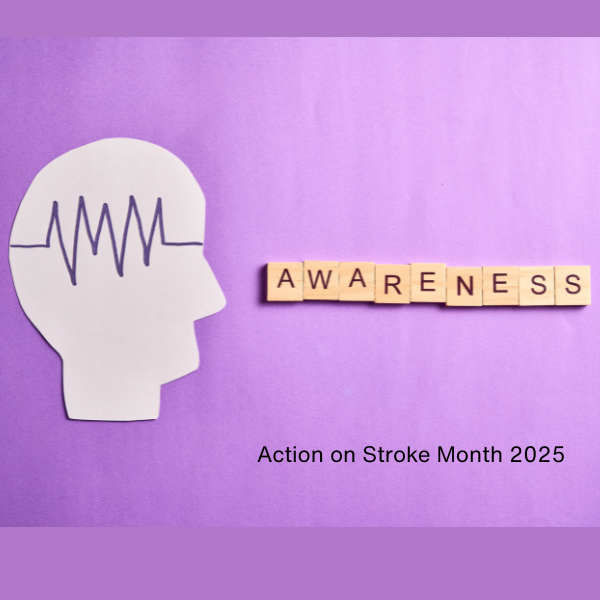National Maternity Investigation: Interim R...
NET & Endocrine Cancer Negligence & Misdiagnosis Claims Solicitors.
Finding out that you have a rare type of cancer like a neuroendocrine tumour can be an incredibly stressful time for you and your family.
You might find yourself worrying about how you’ll cope financially whilst you take time off work to receive treatment, and you may even be worried about your long term prognosis and whether or not you’ll see your children or grandchildren grow up.
In some cases, medical negligence can cause a delay in diagnosis, which can lead to the tumour growing and progressing unduly before treatment can be administered. If your condition has worsened due to the negligent actions of a medical professional, this can further add to the stress and worry that you are feeling.
All of your worries are perfectly valid, and at Lanyon Bowdler we can help to address your concerns and work together to find the right solutions. For example, if your neuroendocrine tumour was initially misdiagnosed and you are concerned about your loss of income from taking extended sick leave from work, we can help you to make a claim for compensation which can alleviate the financial stress of the situation.
Our team of medical negligence solicitors have the knowledge, expertise, and experience to ensure that you receive the best possible outcome for your legal case. We pride ourselves on providing a holistic service, ensuring that you are treated with empathy and provided with clear and concise updates throughout your case. In addition to handling the legal side of your claim, we are also able to facilitate access to private medical treatments and alternative therapies to aid you on your journey to recovery. Please contact us to find out what we can do to help you as you recover from your neuroendocrine tumour.
Can I claim compensation for NET Negligence?
Every medical professional owes a duty of care to their patients, and any breach in that duty of care can give rise to a claim for clinical negligence. If you or a loved one have received medical treatment which was below the standard expected, and your condition has worsened as a result, you may be able to make a claim for compensation.
In order for your claim to be successful, we must be able to prove that the medical professional or establishment was in breach of their duty of care. Evidence to support your case can include your medical records; statements from anyone who witnessed the negligence; and independent expert evidence.
If you’d like to find out more about your eligibility to claim, please get in touch with us. Our friendly and professional medical negligence team will listen to your story before offering advice on the next steps. We will be with you every step of the way, ensuring that you receive the justice you deserve, and the best possible financial settlement that you are entitled to.
Our NET & Endocrine Cancer Claims Expertise
Lanyon Bowdler is a specialist firm of Medical Negligence Solicitors with years of experience supporting clients in cancer negligence claims, including those involving neuroendocrine and endocrine cancer misdiagnosis. Our expertise in this field is recognised by national organisations, peers, and clients across the UK.
The Medical Negligence Team is recognised in Tier 1 for the West Midlands in the 2026 edition of Legal 500. A testimonial states: “The clinical negligence team at Lanyon Bowdler are committed, passionate, compassionate and caring. They take time to fully understand their client’s needs and wishes and provide the necessary support and care to holistically manage their client’s case.”
Chambers UK 2026 rank the department in Band 1 for the Midlands and states “Lanyon Bowdler Solicitors has an impressive practice group with a growing presence across the West Midlands. The team offers specialist advice across the full gamut of clinical negligence mandates, with particular experience in cases of surgical error, delayed diagnosis and failure to supervise those at risk of suicide. The firm is additionally skilled in cases relating to post-surgical negligence, brain injury and fatal claims.”
Listen here to Beth Heath and a former colleague from the Clinical Negligence team talk about the delay in diagnosis of Cancer, using fictitious, but typical cases to illustrate the challenges people are facing.
Your NET & Endocrine Cancer Compensation questions answered
A tumour is an abnormal growth of cells, so therefore a neuroendocrine tumour (NET) is a rare type of tumour that occurs within the neuroendocrine cells of the body. The cells within the endocrine and neuroendocrine systems are responsible for releasing hormones into the bloodstream, so a NET can affect the body’s hormonal functions. A NET occurs when the neuroendocrine cells stop working as intended and begin to function abnormally or grow uncontrollably.
A NET can either be functioning or non-functioning, as follows:
- Functioning – The cancerous neuroendocrine cells cause higher than normal levels of the affected hormone to be produced. For example, a NET in the pancreas can cause an excess in the amount of insulin produced.
- Non-functioning – Neuroendocrine cancer cells are classed as non-functioning when they maintain their ability to release the amount of hormones that is expected of them.
A NET can occur anywhere in the body, however this type of cancer mostly affects the digestive system, pancreas, and lungs. Neuroendocrine tumours can be either benign or malignant, they can be slow growing or fast growing, and they may spread to other areas of the body.
There are a number of different types of neuroendocrine tumours, including:
- Thyroid cancers
- Adrenal cancers
- Small cell carcinoma
- Merkel cell carcinoma
- Large cell carcinoid tumours
- Carcinoid tumours of the lung
- Pancreatic neuroendocrine tumours
If you have been diagnosed with a neuroendocrine tumour and you believe that your condition was made worse because of medical negligence, you may be entitled to claim compensation.
The symptoms of a NET typically vary between patients, depending on the location of the tumour. For example, a NET in the lungs will likely produce symptoms affecting the respiratory system, whilst a tumour in the stomach will produce gastrointestinal symptoms.
Some of the most common symptoms to look out for include:
- Unexplained weight loss
- Loss of appetite
- Abdominal pain
- Bloating
- Diarrhoea
- Constipation
- Nausea and vomiting
- Changes in stool
- Blood in the stool
- Coughing
- Wheezing
- Shortness of breath
- Fatigue
- Hot flushes
- Increased heart rate
This list is not exhaustive, and if you notice any changes in your physical health it is always advisable to speak to your GP as soon as possible. Many of the above symptoms can be attributed to a wide variety of conditions, many of which are less serious than cancer, but your doctor will want to order tests to ensure an accurate diagnosis.
If your GP is concerned about the symptoms you are experiencing, the next step will be to refer you for further testing, usually on an urgent basis. There are a variety of different tests which you may undergo in order for doctors to determine what is causing your symptoms, including:
- Blood tests
- Urine tests
- Ultrasound scan
- Magnetic resonance imaging (MRI)
- Computerised tomography (CT)
- Positron emission tomography (PET)
- Octreotide scan
- Biopsy
Any delay in performing these diagnostic tests can result in a delay in diagnosis, which in turn can lead to your tumour growing and spreading. The longer a neuroendocrine tumour is left untreated, the harder it can be to eventually treat it, resulting in much more intensive treatment and possibly a worsened prognosis. It is therefore vital that all medical professionals involved in your care are vigilant in making the necessary referrals and carrying out the necessary tests. Failure to do so can constitute medical negligence and may give you grounds on which to claim compensation.
The treatment plan prescribed for a NET typically depends on the type of tumour; where it is located; how advanced the cancer is; as well as the overall health of the patient. In most cases, a combination of different treatment methods will be used, including:
- Surgery – If the tumour is diagnosed before it has spread to other parts of the body it is often likely that it can be surgically removed successfully.
- Medication – A type of medicine called somatostatin analogues may be prescribed to stop the overproduction of hormones in order to slow the progression of the cancer or reduce its severity. The medication is administered via injection once every 4 weeks.
- Embolisation – This is a procedure in which a small artery or vein is blocked in order to stop the blood flow to the tumour, thus preventing it from growing further.
- Chemotherapy – This involves medication administered either intravenously or orally in order to kill the cancerous cells.
- Radiotherapy – Small amounts of radiation are used to target and destroy the cancerous cells in order to remove the tumour, shrink it before surgery, or slow its growth.
- Radiofrequency ablation – Heat is produced by radio waves, which is then administered via needle electrodes in order to destroy the cancerous cells.
- Targeted drugs – Everolimus, sunitinib, and lutetium may be used to target and destroy the cancerous cells, and are particularly suitable for patients where the cancer has spread, or the tumour could not be fully removed surgically.
Your treatment for a neuroendocrine tumour will be provided by a multidisciplinary team of medical professionals, including an oncologist, specialist nurse, endocrinologist, radiologist, and surgeon (amongst others). They are required to work together to ensure that you receive the necessary treatment to provide you with the best possible prognosis. Any failure of a member of the team to uphold their duty of care to you could constitute medical negligence, and if your condition has worsened as a result, you may be entitled to make a claim for compensation.
It is not known exactly what causes a NET to form, however there are a number of factors that may increase the likelihood of a person developing this type of rare cancer, including:
- A close blood relative with a carcinoid tumour
- A parent with non-Hodgkin lymphoma
- A parent with cancer of the brain, liver, breast, bladder, or endocrine system
- An existing diagnosis of tuberous sclerosis or neurofibromatosis
- Family history of one of several genetic conditions:
- Multiple endocrine neoplasia types 1, 2, and 3
- Parathyroid hyperplasia
- Medullary thyroid cancer
- Familial isolated pituitary adenoma
- Succinate dehydrogenase disorders
- Adrenal gland based tumours
Being in possession of one or more of these risk factors does not necessarily mean that you will go on to develop a neuroendocrine tumour. However, it does mean that should you present to your GP with any concerning symptoms, who should then be extra vigilant in their assessment of you.
What our clients say.
Contact our NET Cancer Negligence Solicitors
Neuroendocrine tumours (NETs) and endocrine cancers can be particularly difficult to diagnose, often presenting with vague symptoms that require careful investigation. When healthcare professionals fail to act on warning signs or delay essential tests, the opportunity for early treatment can be lost, sometimes with serious consequences.
If you or a loved one has experienced delays or errors in the diagnosis or treatment of NETs or endocrine cancers, you may be entitled to pursue a NET & Endocrine negligence claim.
At Lanyon Bowdler, our experienced NET & Endocrine Cancer Negligence Solicitors are here to guide and support you. As part of our award-winning team of Medical Negligence Solicitors, we have the legal expertise and medical understanding needed to handle cancer negligence claims. We will work closely with you to understand your experience and pursue fair and appropriate compensation on your behalf.
We take pride in offering a compassionate, client-focused approach, ensuring that you feel listened to and supported at every stage of your journey.
With offices in Shrewsbury, Bromyard, Conwy, Hereford, Ludlow, Oswestry, and Telford, we are well placed to serve clients throughout Shropshire, Herefordshire, Mid and North Wales. Our team also represents individuals across the Midlands and is widely recognised as the leading NET & Endocrine Cancer Negligence Solicitors for Birmingham, Wolverhampton, and Worcester. As a leading full-service law firm in Wales, we are here to support you wherever you are based in England or Wales.
Let us help you find answers. Speak to our team today.
Meet the team.
Case studies.
Latest knowledge.
Our awards and accolades.
Get in touch.
"*" indicates required fields

 Back
Back





























 Blog
Blog




 Case Study
Case Study





 Podcast
Podcast









